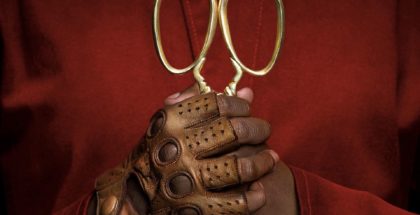Why you should catch up with The Last of Us
Review Overview
Horror
9Humanity
9David Farnor | On 02, Jan 2024
Anyone who dipped a toe in the waters of The Last of Us at the start of 2023 wouldn’t have been blamed for immediately turning it off, thanks to its starting premise involved a parasitic fungus that rapidly spread through the human race. A year on, though, as work begins on Season 2, HBO’s haunting drama is easy to see as one of the best shows of that year.
The notion of “prestige TV” has peaked in recent years, with glossy ensemble dramas ranging from Better Call Saul and The Bear to Mad Men competing for acclaim while the streaming boom has led to a glut of TV shows – and, more recently, cancellations. Stranger Things and Game of Thrones have proven that high-end productions can meld with sci-fi and fantasy, even if AMC’s relentless expansion of The Walking Dead universe has occasionally risked undoing that horror franchise’s initial, striking impact. Now, HBO’s The Last of Us has emerged as the next series to carry the genre torch forward, playing out like a companion to Station Eleven but with added jolts of fear.
Adapted from the video game by its creator, Neil Druckmann, and Craig Mazin (Chernobyl), the series begins in full-on disaster movie mode, as society breaks down in a frenzy of panic, fear, guns and explosions. Then, we leap forward to another familiar sight: the post-apocalyptic aftermath of civilisation’s downfall. But where you might expect a video game adaptation to be an action-heavy church of set pieces and spectacle, The Last of Us succeeds by leaning into a gentle exploration of the world around it.
That slow, thoughtful approach grounds the devastation and horror in human reactions to the crisis – and lets us spend time getting to know our central duo. Pedro Pascal is phenomenal as Joel, a construction worker who is grifting just enough to make ends meet. But his side hustles and dirty jobs lead him to Ellie (Bella Ramsey), a teenager who may or may not hold the cure to the fatal infection – and needs to get across the country.
The entire show hinges on their relationship, and the pair don’t drop the ball once. Pascal is resilient, stoic and rough around the edges, but gradually reveals Joel’s broken insides, exposing a vulnerability and ultimately a compassion that are what really keep him going. Ramsey, meanwhile, steals the whole show as the stubborn, sullen and often hilariously funny youngster, who underneath her brash exterior is filled with fear.
Caring about their survival brings emotional stakes to the whole thing, as they encounter living humans who are more monstrous than the fungus-driven monsters that lurk in the shadows. Whether it’s dictators, cannibals soldiers or worse, it’s testament to our central couple that we don’t entirely lose our sense of humanity. (Watch out for an excellent Melanie Lynskey amid the formidable cast.)
The production detail surrounding them does its best to threaten that, with vines and rubble stretching through the smoky backgrounds with an alarmingly lived-in plausibility. The actions sequences, when they do come, are fast, frenetic and harrowing, but they’re spaced out enough to avoid things becoming repetitive.
The result is a faithful dramatisation of the video game, but one that knows when to deviate and do its own thing. That creative vision is encapsulated perfectly by the flawless third episode, which essentially provides us with a film within the TV show that doesn’t even focus on the protagonists. Instead, we get to know Bill (Nick Offerman), a reclusive survivalist who forms a bond with Frank (Murray Bartlett), an artist. Their blossoming relationship is at once joyous, funny, sweet and inevitably heartbreaking, and it elevates The Last of Us to unexpectedly profound heights – and leaves you hopeful (if that’s at all possible) for what Season 2 might hold. Yes, there’s horror aplenty here, but there’s heart too.
















